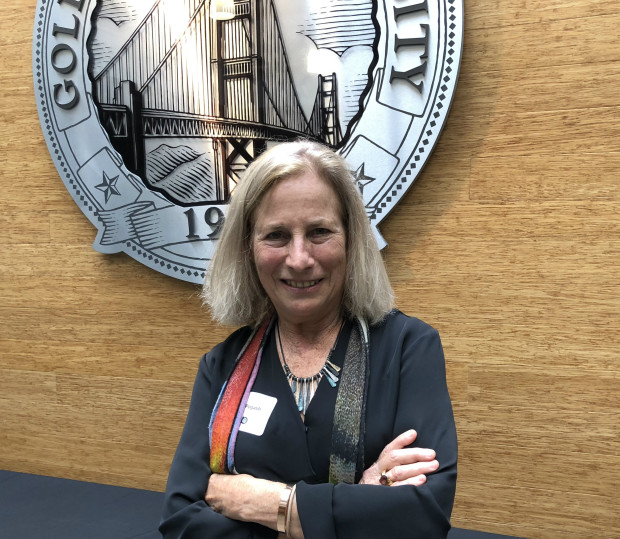
For someone who never took a journalism class, Carol Pogash has had an amazing career as a reporter. Stringer for the New York Times; feature writer for the San Francisco Chronicle; on-air reporter at The News Room; author of bestselling books – she’s done it all. Her stories of local events have run in national outlets because, as she says, “I try to make the subjects appeal to people in South Carolina or New Hampshire, even though they’re about events in California.”
At the October 23 PR Round Table meeting, Ms. Pogash regaled the audience with tales from the front lines, weaving in the theme for the talk: How to take local stories national.
Early in her career she gave a speech to mayors in California, telling them what was wrong with cities in the state. Her mother suggested she submit the speech to the New York Times, as an op-ed. Shortly after she did so, Charlotte Curtis, then-editor of the New York Times editorial page, called her to ask if she could trim the article a bit. “You mean you’re going to run it?” she asked Ms Curtis. “Yes,” came the answer. She recalls that “at that moment I thought gee, this journalism thing is really easy.”
It wasn’t easy. She, as have numerous women trying to enter a man’s working world, was faced with blatant sexism and bias at every turn. One moment that stands out was when she worked as a writer at a nonprofit in Berkeley, where many of her male peers asked her to rewrite their material. She talked to her boss about getting paid what the men were being paid. His response was, “Never let it be said that a woman is a man’s equal until she can enter a smoke-filled room…” She doesn’t remember what else he said because her anger deafened her ears to the rest.
Poetic justice came years later when she was covering then San Francisco Mayor Dianne Feinstein. That same former boss had contacted Feinstein offering to help her “in any way he could.” Pogash relished the moment she could fill Feinstein in on her history with the guy; Feinstein immediately backed off accepting his offer.
But also like many other women, Pogash overcame obstacles with her tenacity and drive. It didn’t hurt that she’s also a gifted writer. Randy Shilts, the late AIDS advocate and journalist, referred to her book on the AIDS crisis as “the best book on AIDS ever written, after my book on the subject.” She credits that support with making the sale of the manuscript a reality.
Her book, “Quotations from Chairman Trump,” (Rosetta Books) has sold over a million copies. She notes that “I didn’t write a word of it; these are all things he said.”
Pogash offers these tips for successfully pitching a story:
1. Follow your intuition.
2. Timing is key.
3. Love your story.
4. Know everything there is to know about the subject.
5. Frame your pitch to a trend or something unique.
6. One strike is all you get. Subsequent pitches must work, or the editor may tune you out.
7. Be resilient.
8. Grab the editor with the subject line in your email.
9. The first sentence is the one that counts.
10. Lean on your contacts.
- Phyllis Goodman
